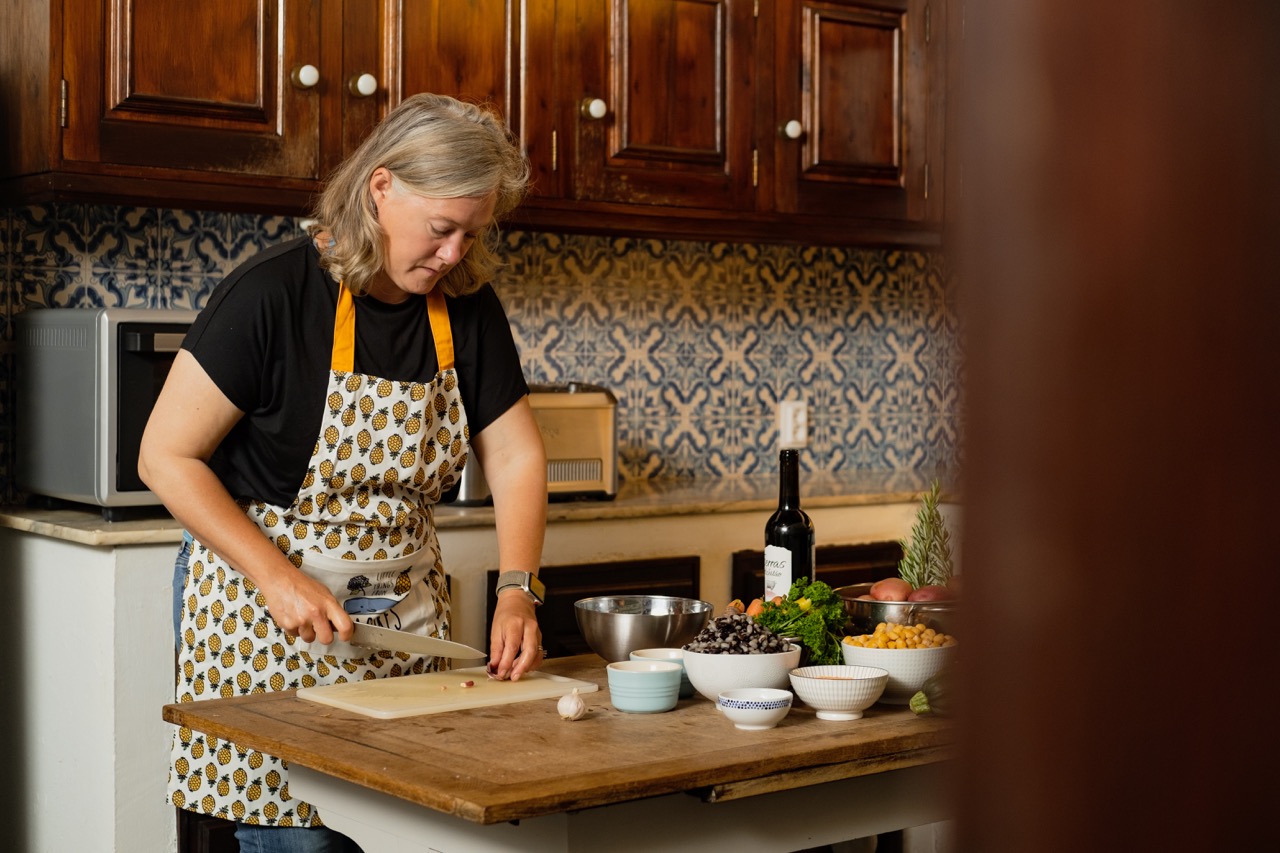Just outside Ponta Delgada is the neighbourhood of Livramento, a particularly sunny spot on the island which was the centre of the once booming trade in oranges. In the 19th century millions of citrus fruits were shipped from São Miguel to the UK and a few families became very wealthy from the profit of this trade. One thing they did with their fortune was to build grand country mansions – Solars – in the midst of their orange groves. Unfortunately, a nasty infestation of Brazilian insects destroyed the orange crop, the trade collapsed and the old solars of Livramento fell into decay. Despite centuries of neglect many of these fabulous estates are still standing, however the task of restoring them is so enormous that hardly anyone seems to want to take them on. One brave British couple have however, risen to the challenge. Ali Bullock and Caroline Sprod spent 12 years living in hectic 24-hour Hong Kong before making a drastic change in lifestyle by moving to São Miguel and purchasing a crumbling Livramento country house. It’s been a journey with ups and downs – Covid locked them down just days after they received their hotel license – but they are right now in the finishing stages of restoring Solar Branco into a sustainable Eco Hotel, surrounded by orchards of oranges, just as it would have been in its halcyon days.
Interviewer: Please introduce yourself.
Caroline: I’m Caroline Sprod. We’re here at the Solar Branco Eco Estate, which I will talk more about later, on São Miguel island in the district of Ponta Delgada. I first came to the Azores on my honeymoon with my husband Ali. I was vaguely aware of the Azores. When we came we just fell in love and I thought one day we want to come and live here. We already knew that it would be São Miguel, we just had that feeling that it was a bit bigger than Faial but still Azorean. At the beginning of 2007 we moved to Hong Kong and we were there for about 12 years. When we were thinking about leaving we remembered the Azores and we thought yes – but we have to get there before Brexit. We had already been thinking of doing some kind of hospitality business. My original career was with the diplomatic service of the UK, Ali worked in marketing, particularly social media, we organised a lot of events and were often hosting friends and we somehow came up with the idea of a hotel. We thought that there were probably all kinds of things we could do here, we are quite entrepreneurial and we just had that feeling. Our idea was to find a rundown old country estate with lots of interesting buildings that needed love put into it and bring it back to life and turn it into an eco-hotel. We thought it would take quite a while, but this was the first one we saw and it gave us everythingw we were looking for and more.
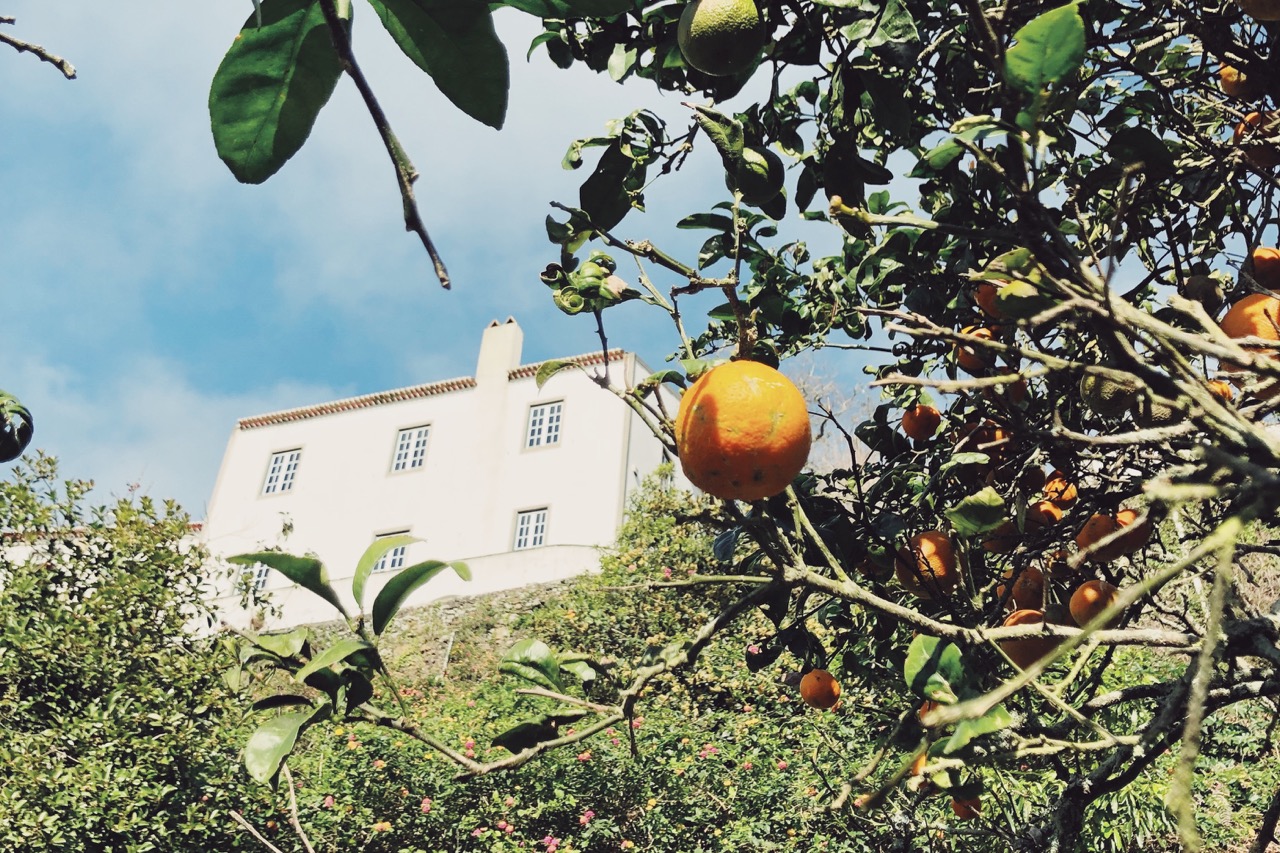
Interviewer: I’m really interested in the idea of this old country house and how you restored it. Can you tell me a bit more about how you found it and the history of it?
Caroline: We came on an initial reconnaissance visit in March 2018 with a view that we would move by the end of the year. I had been looking online at property sites, but you can’t really know how a place will be from a website. Our initial idea was to get a base in Ponta Delgada and then from there go around the rest of the island to find what we’re looking for. One Saturday morning I got an alert with a picture of this amazing white house on a hill and I just thought wow! We should check this out even though we are not ready for something on this scale. As soon as we got here, we just thought the energy was right .Ali wanted to set up something called the Gin Library and he was seeing so many places where it could be.We just knew that this was what we were looking for, maybe the house was looking for us. I just had that feeling often with the places where we have lived there was something in the place that was looking for us.
Interviewer: I understand.
Caroline: Some people here say you don’t choose the island the island choses you. Someone who moved here from Hawaii said that there they say the island spits you out. I have also seen people here being spat out by this island. This volcanic island spits people out when they don’t want them here.
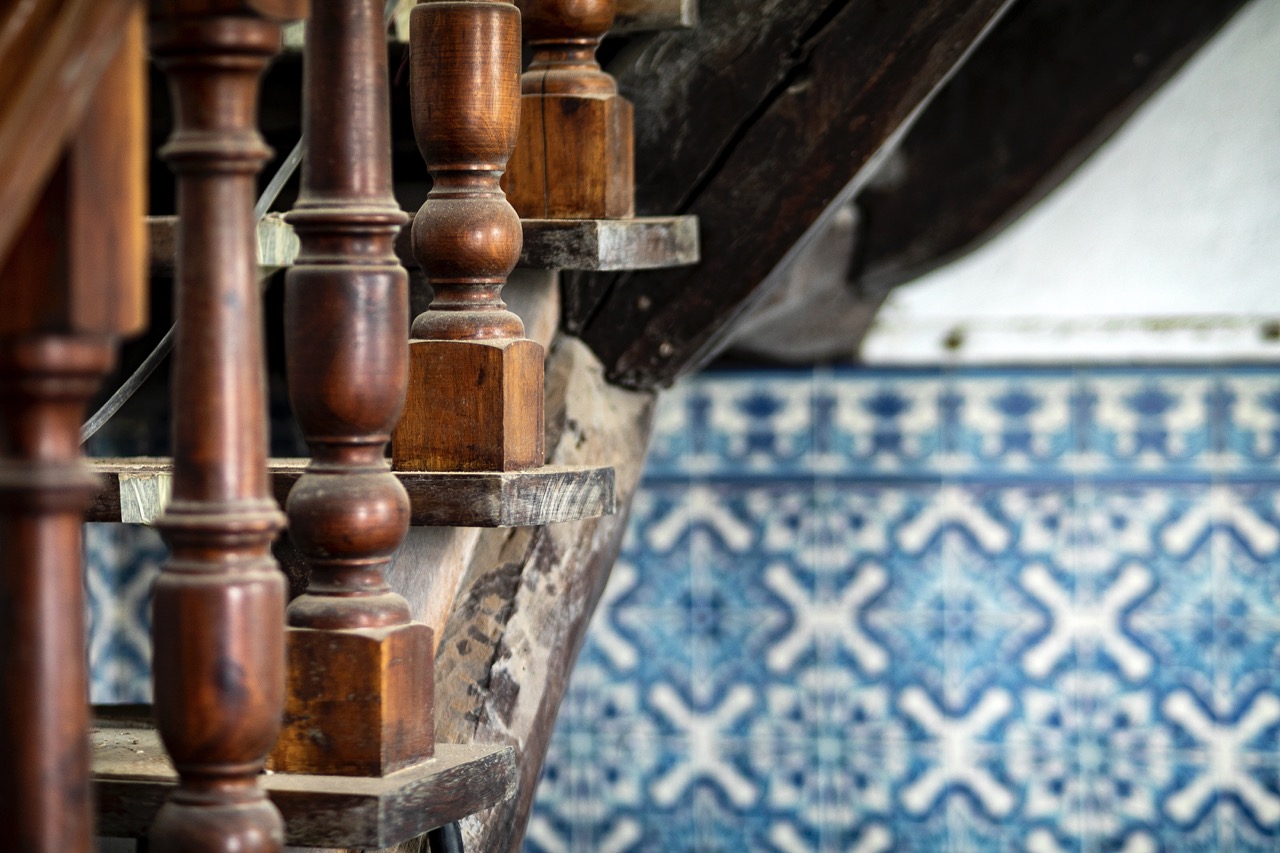
Interviewer: Do you know much about the history of this house?
Caroline: Not quite enough. I am getting myself in gear to do the research. I’ve asked around the neighbourhood and there are some really great stories that come out. The guys at the local council in Livramento have some information. They have a book that a local historian wrote in 2018 about lots of old houses in the area. One of the men said that his father told him there were soldiers billeted here during the Second World War. The house seems from the style to be late 19th century which would be just after the riches of the orange period. More recently I have heard from many in the neighbourhood that when they were kids it was empty, no windows, or doors and that they would come and play haunted houses here. I am pretty sure that that is true. Someone told me that before that it was called Casa Holanda, Dutch House, because there were Dutch girls living here and they were ‘working girls’. I don’t know if this is true either, but it would make a very colourful history of the house. From time-to-time people have turned up saying that they lived here.
Interviewer: So, a lot of interest from local people when you began to restore the house. What kind of state was it in when you arrived here?
Caroline: There was a family living here. Our current neighbour’s son, who is in his mid-forties, said that after it was abandoned, there was a family who bought it and renovated, and then moved out because of the ghosts. They didn’t like the haunting! But I think the ghosts went with them. The family we bought it off had been here for 20 years. They still live in Ponta Delgada, their housekeeper comes by and she is very chatty and says she never saw a ghost. The daughter came over in the summer and also said no sign of ghosts! Although the house had been renovated it was in need of a lot more work – plumbing, electricity, leaks. The previous family took the view that it was better to go and live in something a bit easier to deal with. They have teenage kids now and moved to a new house in Ponta Delgada.
Interviewer: It is true that these old places in São Miguel are very difficult to keep. It takes a lot of money. What has been the biggest challenges in restoring the house?
Caroline: It had taken a long time to get the permissions to do the work. The costs have spiralled from what we originally thought we would spend. But it’s going to be a very nice place and have good bones for decades to come. We’re very lucky because the Azores has good funding that comes from the European Union, and we have some help from that. That makes it viable because it would be cheaper to build something of this size from the start then to renovate it.
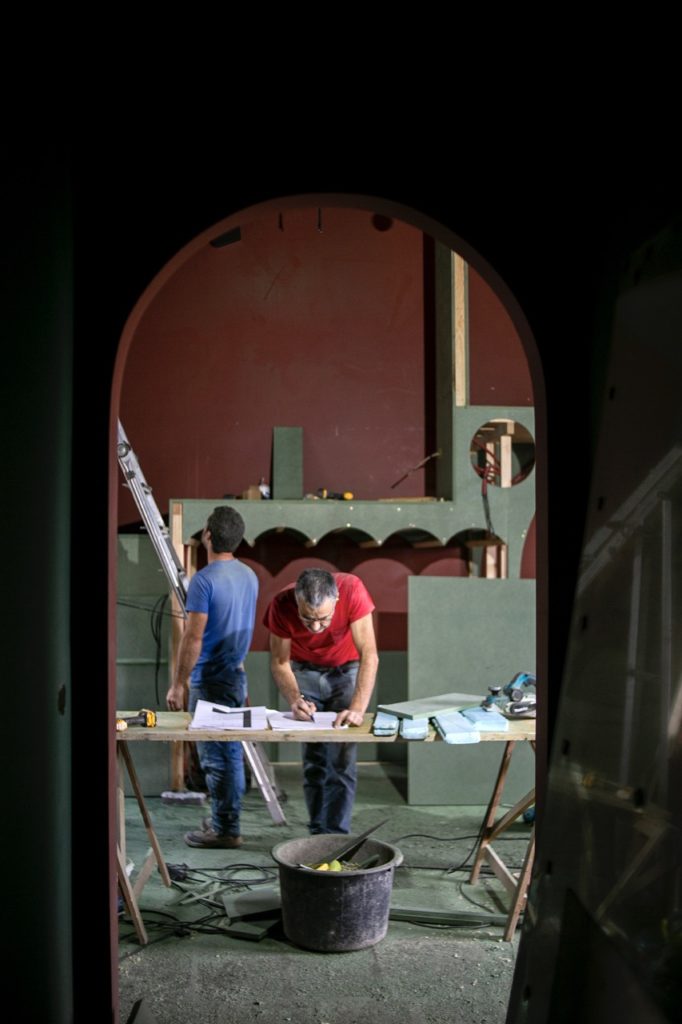
Interviewer: Do you feel a certain responsibility towards the house? A lot of locals don’t want to do this kind of thing and as a newcomer you are preserving some of the island’s history.
Caroline: Yes, definitely. As a family house it is not that practical. It would either be a labour of love or something that you can generate income from it like a tourism business. And this is a relatively small house compared to the other solars of Livramento. Around here there are at least four or five houses that are crumbling, and they are all for sale. Unless you get someone who is really rich and wants to just have an enormous holiday home, having them as hotels is the only way to go.
Interviewer: Obviously there has been a spike in tourism here in the Azores and a few people I have talked to saw the negatives to this. But tourism is a positive thing in terms of preserving this heritage.
Caroline: The whole debate on the good and bad sides of tourism. You could have a week-long conference on it and there would still be loads to say about it. I really hope that we are going to be one of the first ones with one of the old houses here opened for tourism. I hope that someone comes along, probably a business, and sees the potential around here because these are very beautiful, amazing estates that are just being left to ruin. There are at least five in Livramento, which was the centre of the orange trade. These buildings come from the wealth of the orange trade but they are just no viable anymore. Different countries have different approaches to this problem of historic houses. In England, for example, the National Trust would be super keen to take buildings like these on. Here it is really somebody that can get help with funding because it is not viable as a business even if you have private funds. But it’s a fantastic opportunity. Destination weddings are becoming fashionable here and these would be excellent venues, you could have conferences or high-end retreats for business leaders. Lots of potential.
Interviewer: What have been the biggest challenges as a newcomer, trying to start a different kind of hotel?
Caroline: For my husband and myself it was quite a culture shock coming here from Hong Kong, even though we wanted to get away from that hectic life. Coming from a 24-hour city where things happen quickly to coming to where things are a little bit slower, that was definitely an adjustment. We needed to decompress to have that transition, from a crazy lifestyle to a more laidback lifestyle. Getting to grips with the language, that is also a transition. Ali my husband has picked up a bit but doesn’t really speak Portuguese. I was under the illusion that I spoke Portuguese but about a year later I realised that wasn’t Portuguese. I speak Spanish. I have good friends from Brazil who lived with me in London for a few months and I learnt some from them, but I was definitely under the illusion that I could talk when I couldn’t really. But I think that was probably a good thing for me because I see what holds people back is that they don’t believe they can communicate whereas I was just going round believing I was being understood and eventually I was. I’m still not elegant in what I say, but I get my message across. A lot of my builders and engineers don’t speak English and you quickly learn the building words. I did languages at university, so I had gone through the process of not knowing a language and then speaking it quite fluently a few times, and I knew that journey.
Interviewer: Yes, it’s a very interesting topic for newcomers, learning the language.
Caroline: For me, it’s a real pleasure. I wouldn’t feel comfortable living somewhere where I didn’t speak the language. You’re not really part of the place if you don’t speak it. I have fun going around talking to people. It’s a small place, people know you, you go to the market and the stall owners know you and it’s fun. In general people here are really friendly and welcoming and they like people coming from the outside. A lot of foreigners don’t think that is the case, but I do. People in the foreign community will say that you must be careful that you don’t give the impression that you’re coming here from outside to tell people what to do and take over things. Which I don’t want to do. I always feel sensitive that I want to join a community rather than try to impose my way on it. We’re doing a lot of stuff with sustainability and Ali set up the Ocean Azores foundation here. At times I felt a bit awkward about this because we have come from the outside but all the people on the board are leading local people and what they have said is thank you for coming here and doing what the Azoreans should be doing.
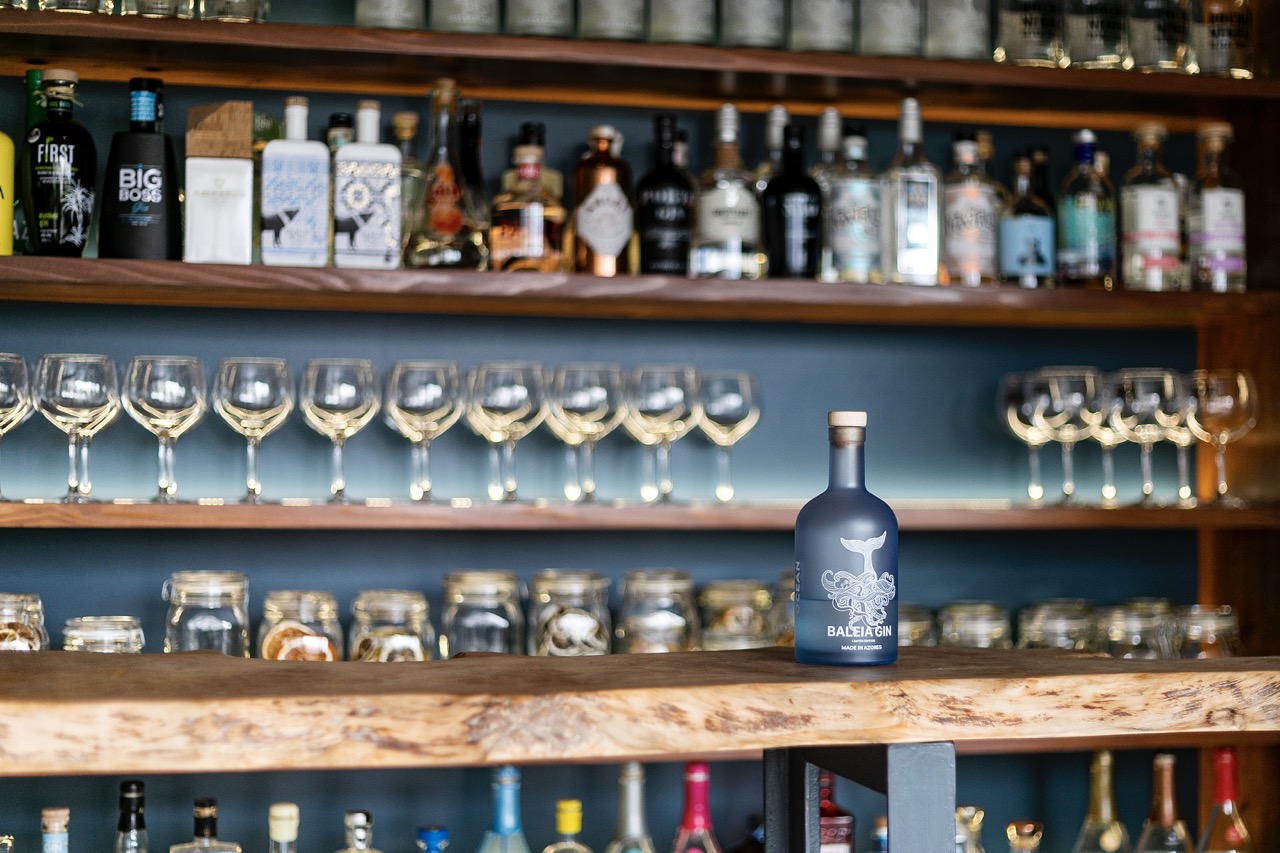
Interviewer: Any final thoughts about the way the new and the old are interacting in the Azores now?
Caroline: In terms of what we’re doing here now, we have a big focus on sustainability. I see more people taking a wider interest in that. I see more people looking at local food cultures and trying to look at the sustainability of the local food cycle. That’s an opportunity I think is overlooked. Focusing on making this a food destination would bring in old traditions with global cuisine because you can grow amazing things here. You could have world flavours with locally grown products rather than what we have a lot which is local food made with vegetables that are flown in from Spain. People don’t necessarily notice what they are getting and it’s an interesting opportunity to focus on food and drink, because people will travel for that.
